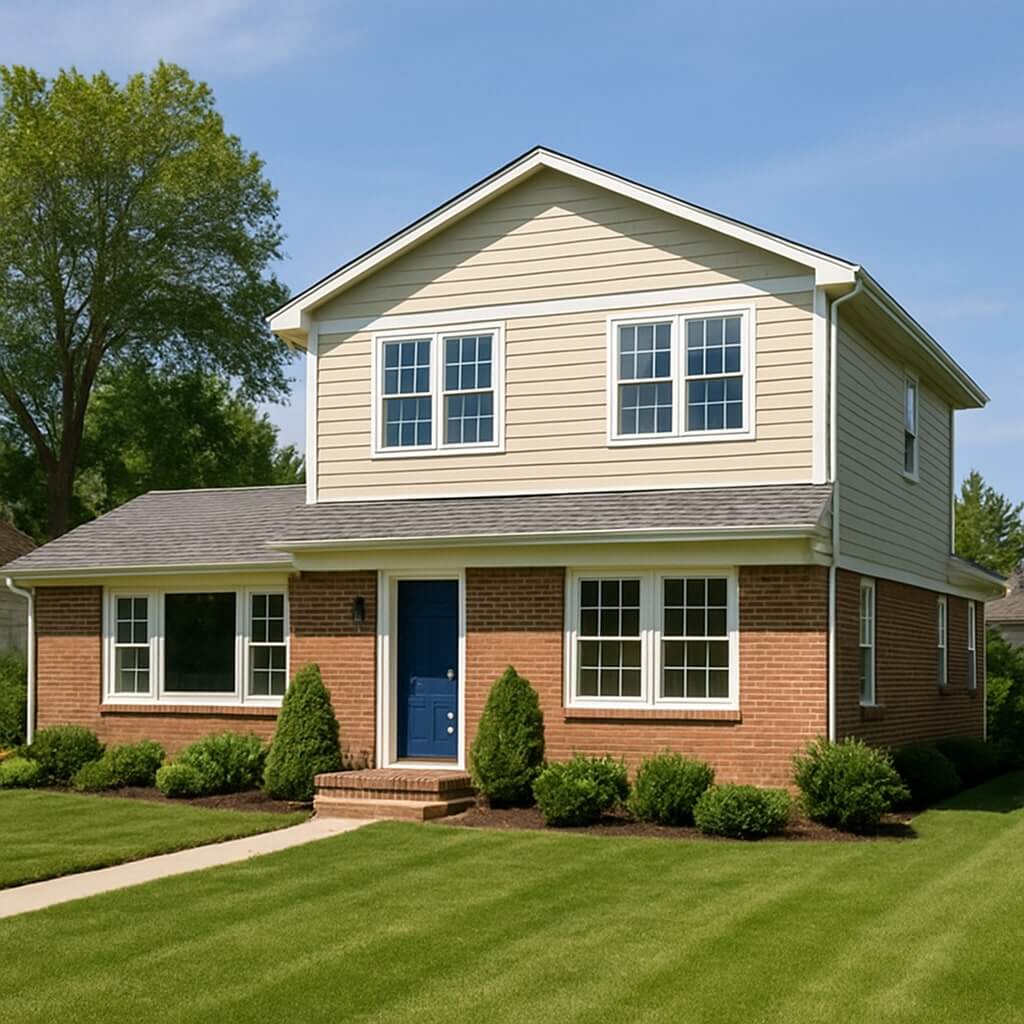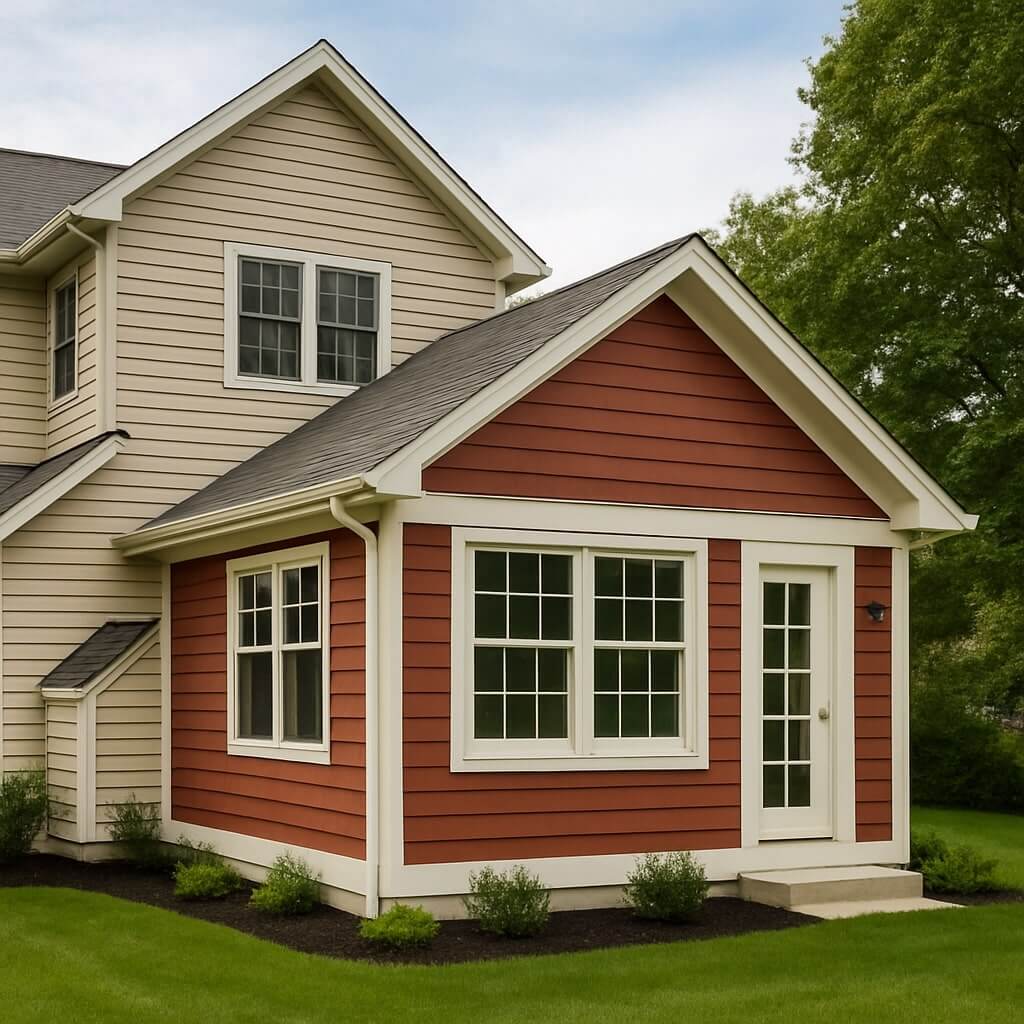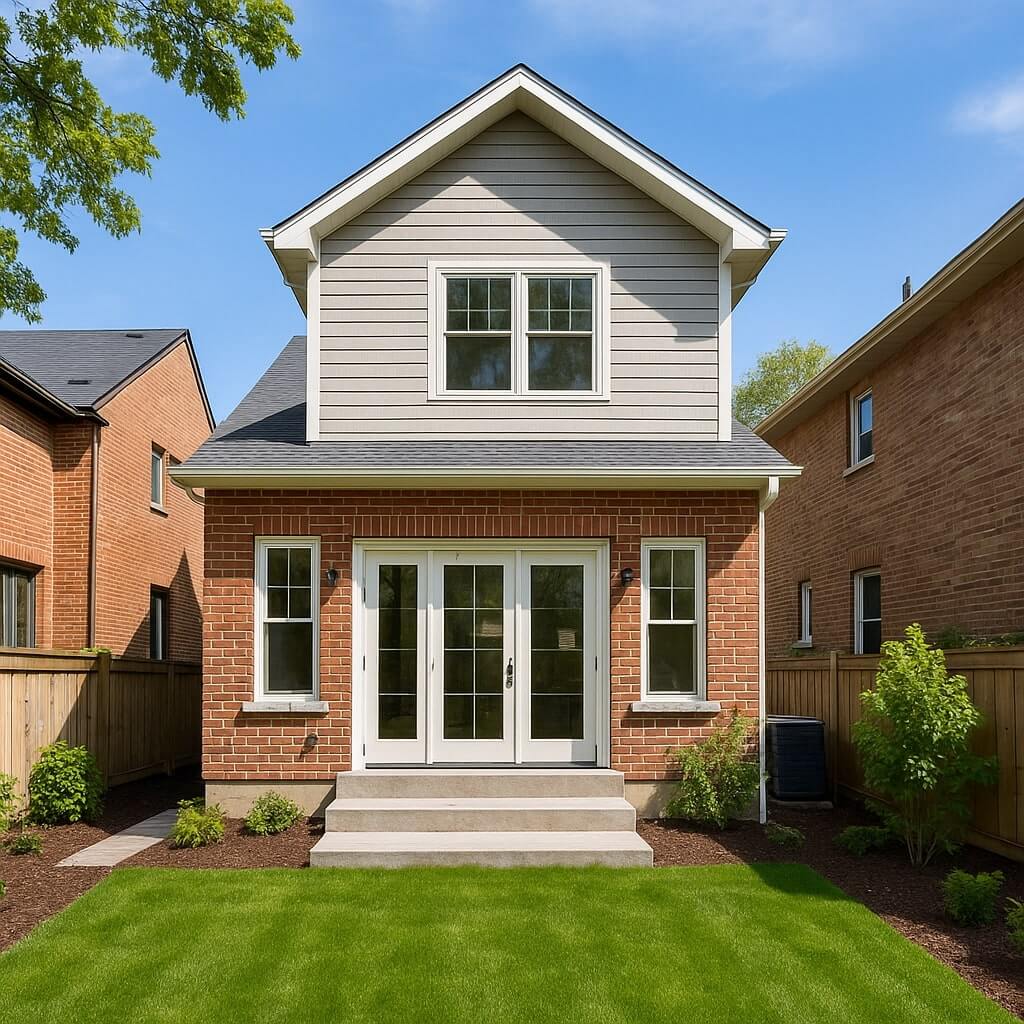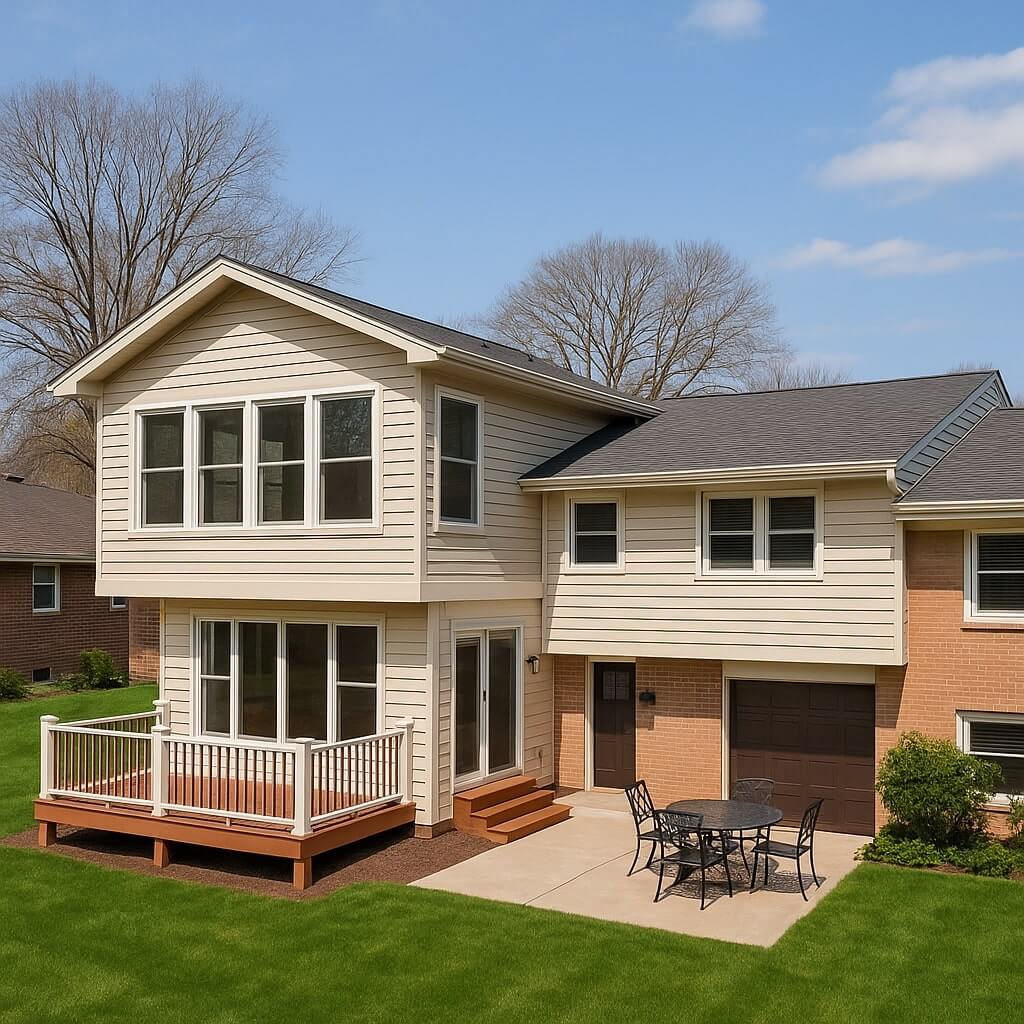Ranch homes are known for their single-level, sprawling layouts. But as families grow and space needs evolve, homeowners often consider second story additions. This smart vertical expansion not only increases square footage but also boosts curb appeal and property value.
In this guide, we’ll walk you through everything you need to know about second story additions to ranch homes—design considerations, cost breakdowns, structural challenges, and expert tips.
Benefits of a Second Story Addition on Ranch Homes
1. Maximized Square Footage Without Expanding the Footprint
One of the primary reasons homeowners add a second story is to increase space without reducing yard size.
2. Increased Property Value
Adding a second story can significantly increase your home’s resale value, especially in urban or suburban areas where land is limited.
3. Enhanced Aesthetic Appeal
A second floor gives a once-flat ranch home a more modern, dynamic appearance, often improving neighborhood appeal.
4. Zoning & Lot Limit Advantages
In areas with strict zoning or setback rules, building upward is often more feasible than building outward.
Design Ideas for Second Story Additions
Master Suite Retreat
Turn the upper level into a luxurious master bedroom with walk-in closets and a spa-style bathroom.
Kid’s Bedrooms and Playroom
Design a family-friendly zone for kids with ample space for sleeping, studying, and playing.
Home Office or Studio
A second story can serve as a quiet retreat for remote work, artistic creation, or fitness.
Family Room or Loft
Use the upstairs space as a second living room, reading nook, or TV lounge.
Cost to Add a Second Story to a Ranch House
Adding a second floor typically costs between $150 to $300 per square foot, depending on factors like:
- Structural reinforcement needs
- Local labor rates
- Quality of materials
- HVAC and plumbing extension
Estimated total cost: $100,000–$250,000+ for a 1,000 sq ft addition.
Steps for Adding a Second Story
- Consult a Structural Engineer
Ensure your existing foundation can support a second floor. - Hire an Architect or Designer
Create blueprints that blend aesthetics with structural needs. - Get Permits and Approvals
Check with your local municipality for zoning regulations and building permits. - Work with an Experienced Contractor
Choose a builder experienced in second story renovations. - Prepare for Temporary Relocation
Depending on the scope, you may need to live elsewhere during construction.
Challenges to Consider
- Weight load & foundation support
- Staircase placement
- Roof removal logistics
- Plumbing/HVAC reconfiguration
- Budget overruns
Working with the right professionals ensures these issues are planned for and handled properly.
FAQs About Second Story Additions to Ranch Homes
Not all ranch homes are structurally ready. A structural assessment is crucial to determine if reinforcements are needed.
Typically 3–6 months, depending on weather, permits, and complexity.
Building up is often more cost-effective in areas with small lots or strict zoning, though it can be pricier per square foot than single-level additions.
Usually not, but your existing foundation may need reinforcement to handle the new load.
Yes. A second story will increase your home’s assessed value, potentially raising property taxes.
It depends. Some projects allow partial occupancy, but others require you to temporarily relocate for safety and efficiency.
Conclusion: Elevate Your Lifestyle—Literally
A second story addition to your ranch home is more than an upgrade—it’s a transformation. With increased space, value, and style, it’s a worthwhile investment when done right. By planning carefully and hiring experienced professionals, you can elevate your home and your lifestyle, floor by floor.




